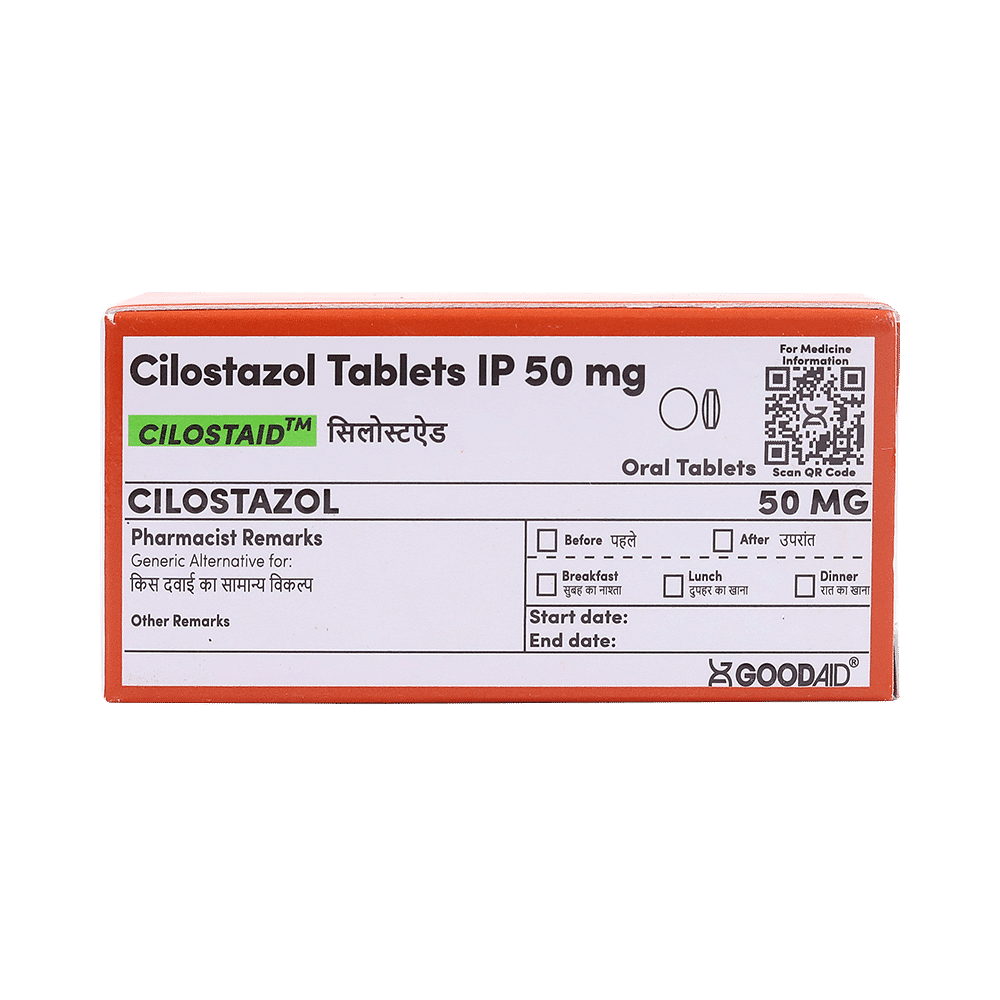
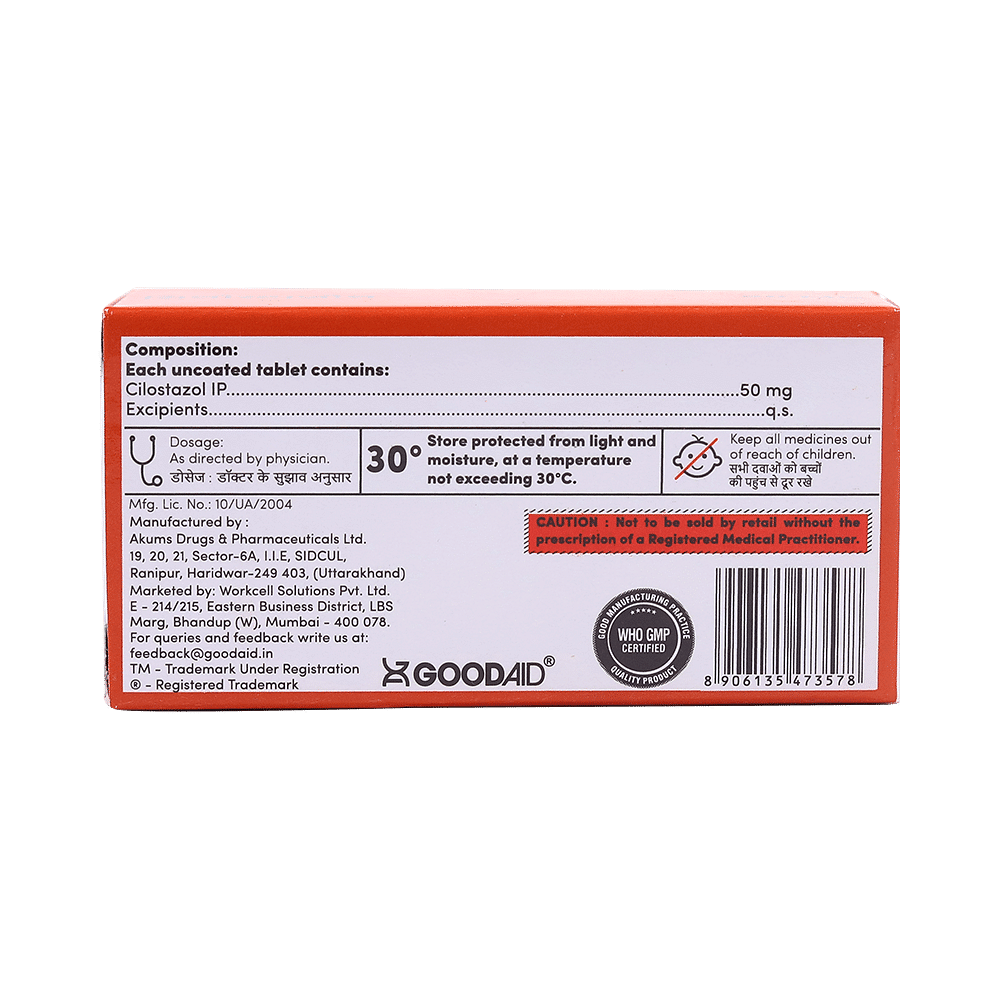
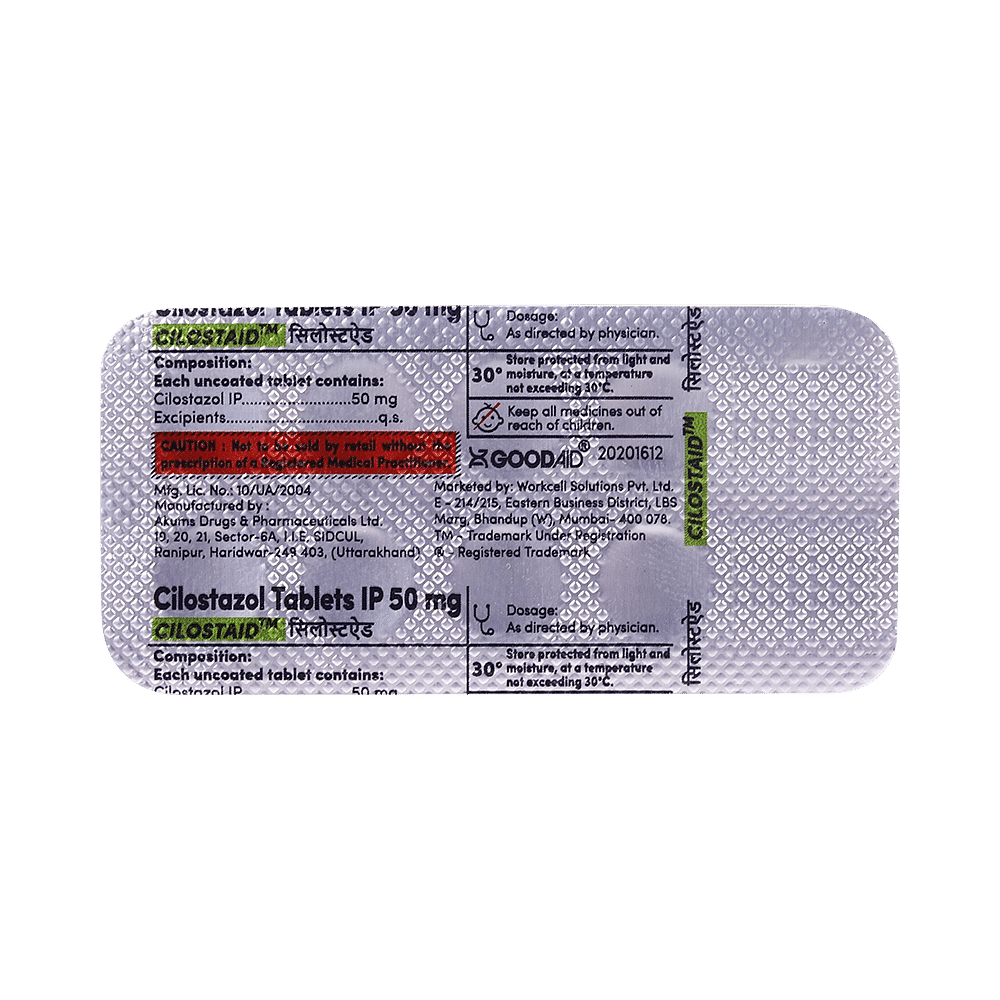
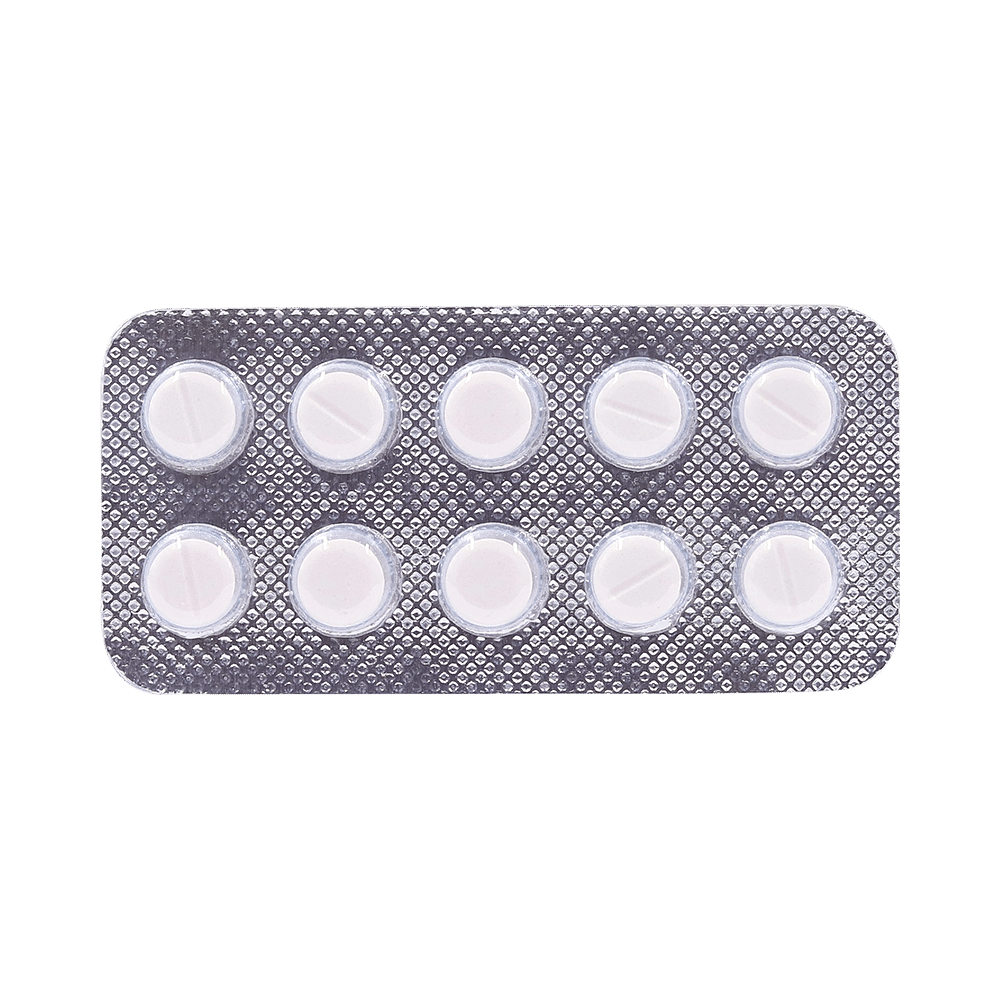
Cilostaid Tablet
Manufacturer
Workcell Solutions Private Limited
Salt Composition
Cilostazol (50mg)
Key Information
Short Description
Cilostaid Tablet is used to treat pain in the legs due to insufficient blood flow (intermittent claudication) and reduces cramping, numbness, or weakness in the legs.
Dosage Form
Tablet
Introduction
Cilostaid Tablet should be taken regularly as advised by the doctor. You should take it on an empty stomach and at a fixed time. This medicine should not be stopped abruptly without consulting the doctor. It may cause side effects like headache, vomiting, edema, diarrhea, dizziness, palpitation, abdominal pain, abnormal stools, and edema. Use of this medicine may increase your risk of bleeding. Let your doctor know immediately if you see a pinpoint rash or blood in your vomits, urine, or stool. This medicine may not be suitable for some people. You must inform the doctor if you are suffering from any liver or kidney disease. Also, let your doctor know about all the other medications that you are using regularly. This medicine is not usually recommended during pregnancy or breastfeeding, so always consult your doctor before taking it.
Directions for Use
Take this medicine in the dose and duration as advised by your doctor. Swallow it as a whole. Do not chew, crush or break it. Cilostaid Tablet is to be taken empty stomach.
Safety Information
Side Effects
Headache Vomiting Edema Diarrhea Dizziness Palpitation Abdominal pain Abnormal stools Edema
Alcohol Warning
It is not known whether it is safe to consume alcohol with Cilostaid Tablet. Please consult your doctor.
Breastfeeding Warning
Cilostaid Tablet is probably unsafe to use during breastfeeding. Limited human data suggests that the drug may pass into the breastmilk and harm the baby.
Pregnancy Warning
Cilostaid Tablet may be unsafe to use during pregnancy. Although there are limited studies in humans, animal studies have shown harmful effects on the developing baby. Your doctor will weigh the benefits and any potential risks before prescribing it to you. Please consult your doctor.
Interacting Medicines
Clotrimazole Esomeprazole Fluconazole Itraconazole
How it works
Cilostaid Tablet widens the blood vessels and decreases the stickiness of the platelets, thereby increasing the blood flow to the lower limbs.
Quick Tips
Take it at least half an hour before or two hours after breakfast and dinner. It may take up to 12 weeks before your symptoms improve. Keep using the medication as directed. Consult your doctor if your symptoms do not improve after 4 weeks of treatment. It may cause dizziness. Don't drive or do anything that requires mental focus until you know how it affects you. Do not take it if you have heart failure, persistent chest pain at rest, or have had a heart attack or any heart surgery in the last six months.
Related Medicines
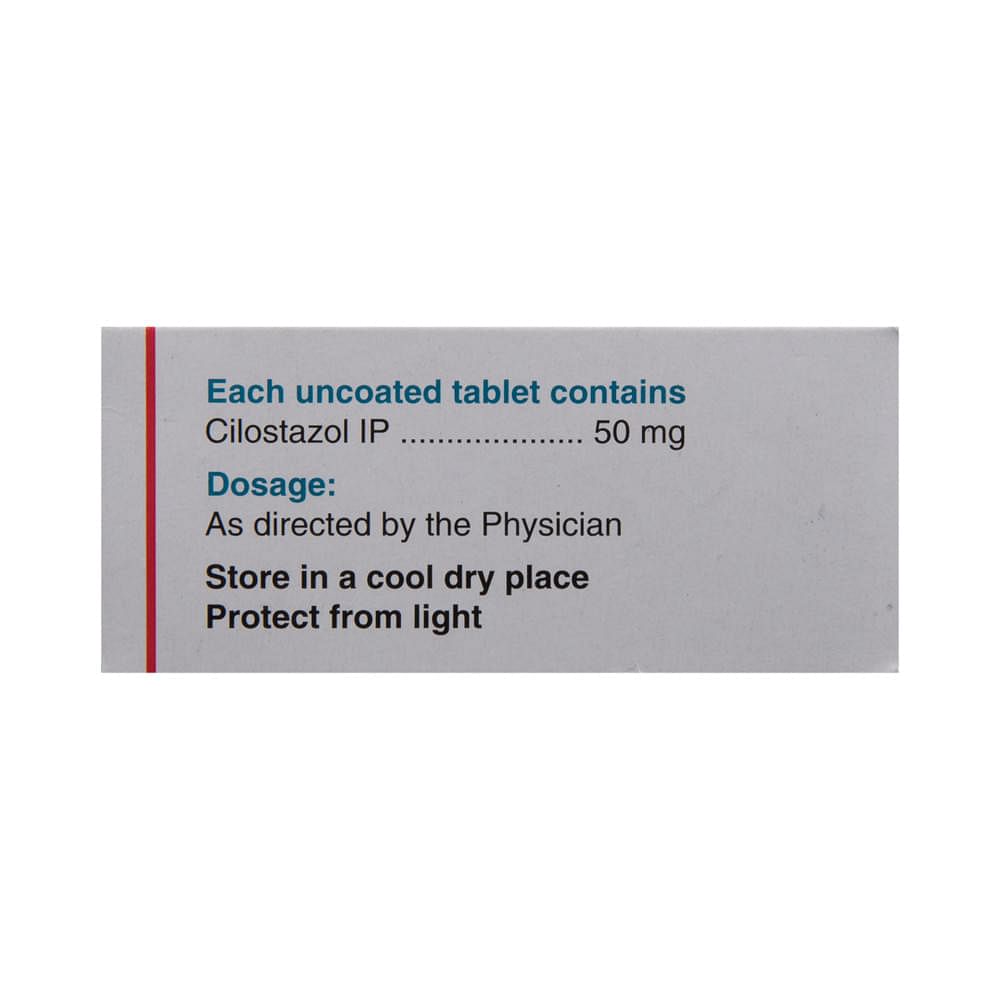
Pletoz-50 Tablet

Vascilol 50mg Tablet
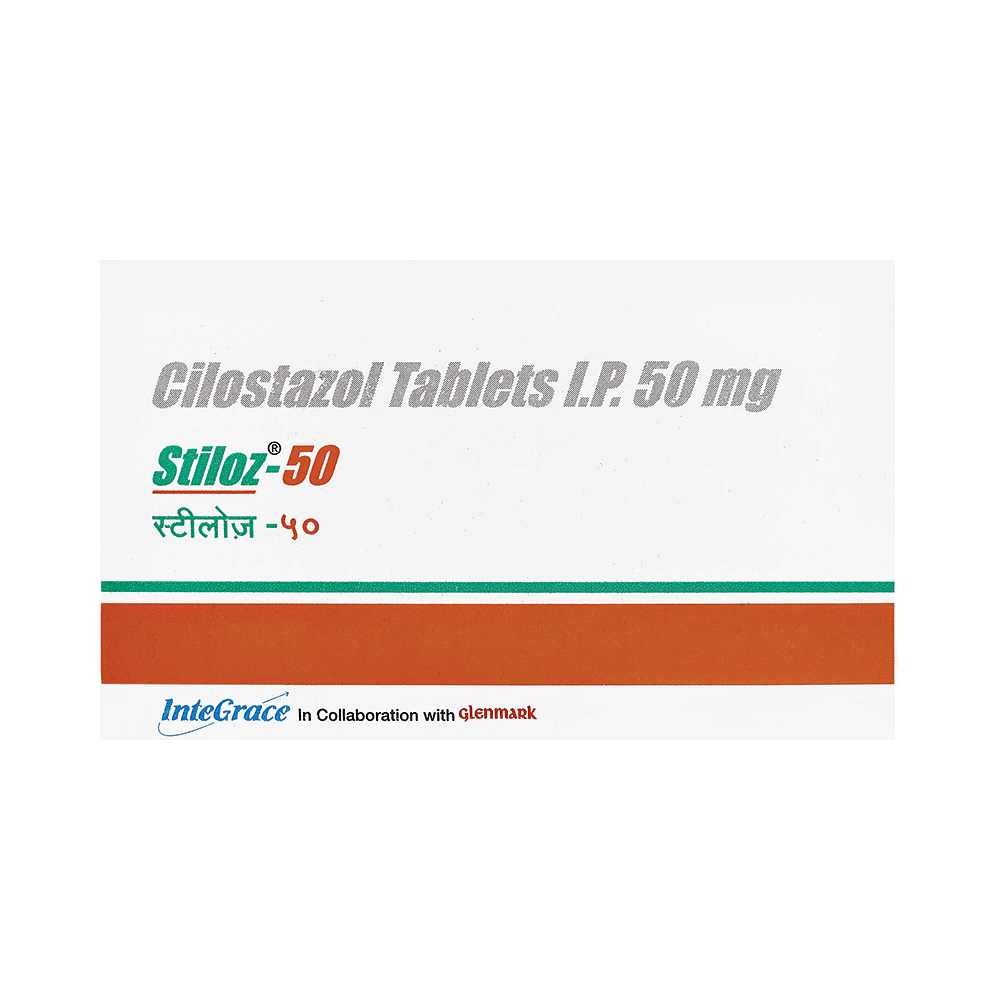
Stiloz-50 Tablet

Cilostoz 50mg Tablet

Cilonol 50mg Tablet
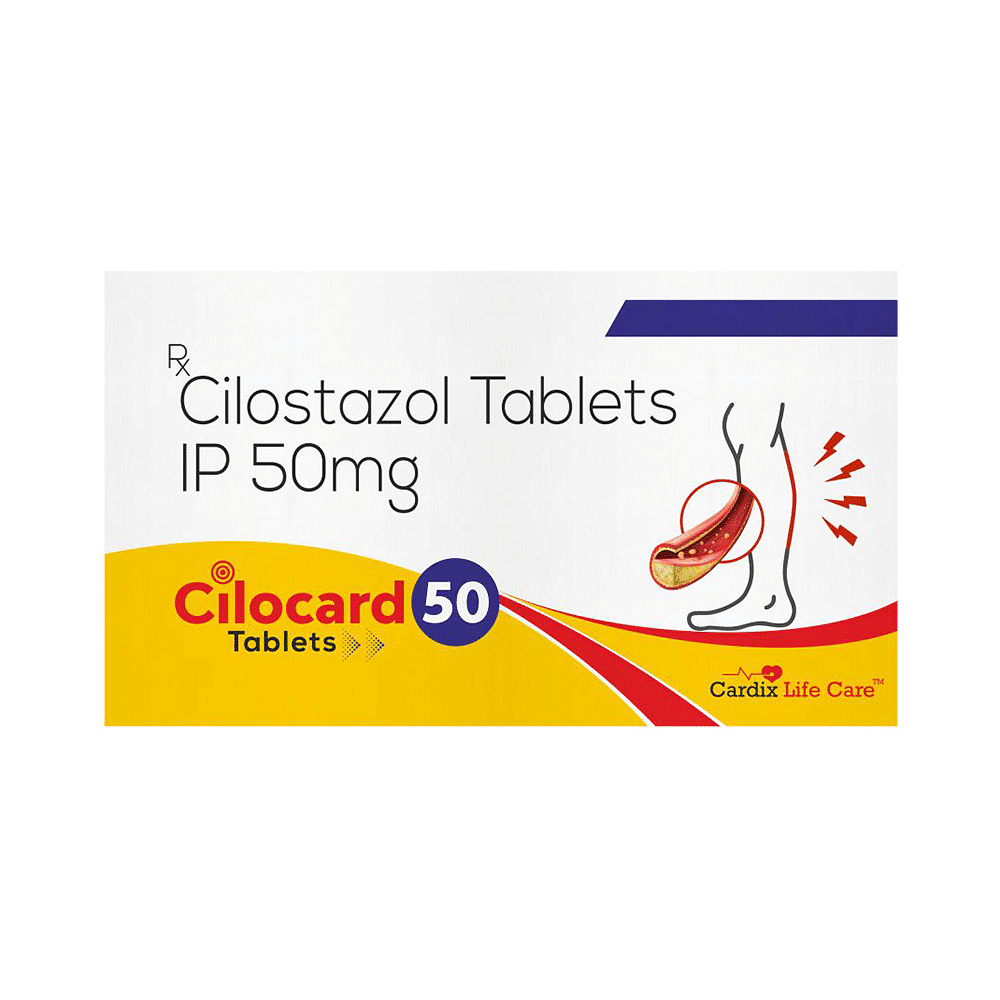
Cilocard 50mg Tablet

Cilarite 50mg Tablet

Stiloz 50 Tablet

Cilatoz 50mg Tablet

Vascilo 50mg Tablet
Frequently asked questions
What are the potential risks of bleeding associated with taking Cilostazol tablets?
Cilostazol tablets may increase your risk of bleeding. Be cautious when engaging in activities that could cause injury or bleeding, and inform your doctor immediately if you notice any unusual bruising or bleeding.
How does taking Cilostazol tablets impact my condition?
Cilostazol tablets can reduce your likelihood of developing blood clots in the blood vessels of your leg, lungs, heart, and brain. You might not notice a difference after starting treatment with Cilostazol tablets, but continue to take them as directed by your doctor for optimal benefits.
For how long should I continue taking Cilostazol tablets?
Take Cilostazol tablets for as long as your doctor recommends. Your progress will be evaluated after three months of treatment, and your doctor may advise you to discontinue the medication if it's not effective for you. Remember that this medicine helps control your condition but doesn't cure it; keep taking your prescribed medications even when you feel well.
When can I expect improvements in my symptoms?
You might start noticing improvements in your symptoms after 2-4 weeks of starting treatment with Cilostazol tablets, but the full benefits of this medication may take about 12 weeks to become apparent.
What should I do before undergoing surgery if taking Cilostazol tablets?
If you're scheduled for surgery, discontinue your Cilostazol tablet therapy at least five days prior. This is because Cilostazol tablets can increase the risk of bleeding and may lead to excessive bleeding during surgery.
Is it safe for patients with heart failure to take Cilostazol tablets?
Cilostazol tablets are not suitable for patients with heart failure due to any severity, as they may worsen heart failure further. Medicines with similar effects (phosphodiesterase inhibitors III) have been associated with reduced lifespan in such patients.
How does Cilostazol tablets affect blood pressure?
Cilostazol tablets tend to lower blood pressure due to their vasodilatory properties. If you're taking medications that also lower your blood pressure, exercise caution and monitor your blood pressure regularly; consult your doctor if necessary to adjust the dosage.


